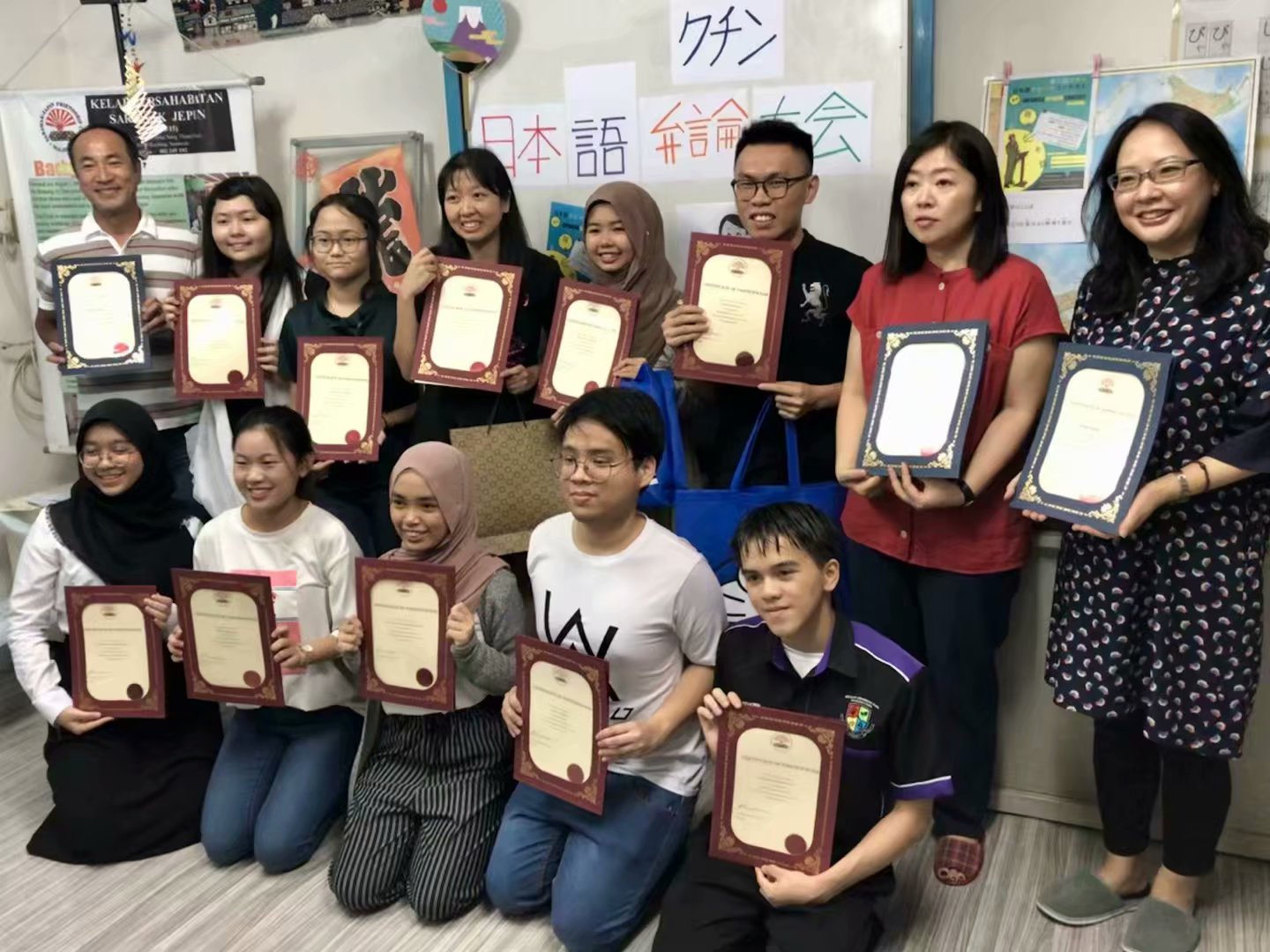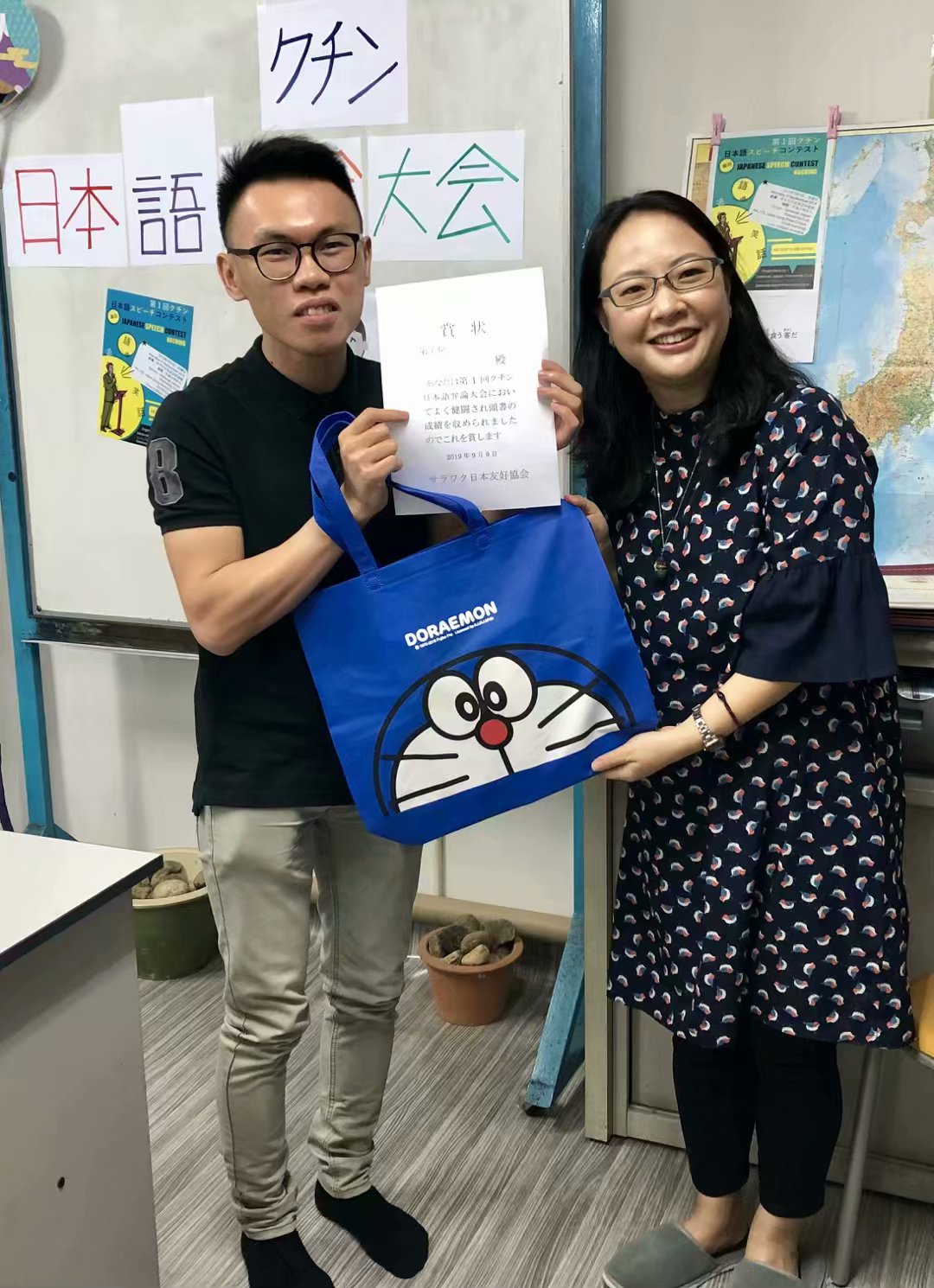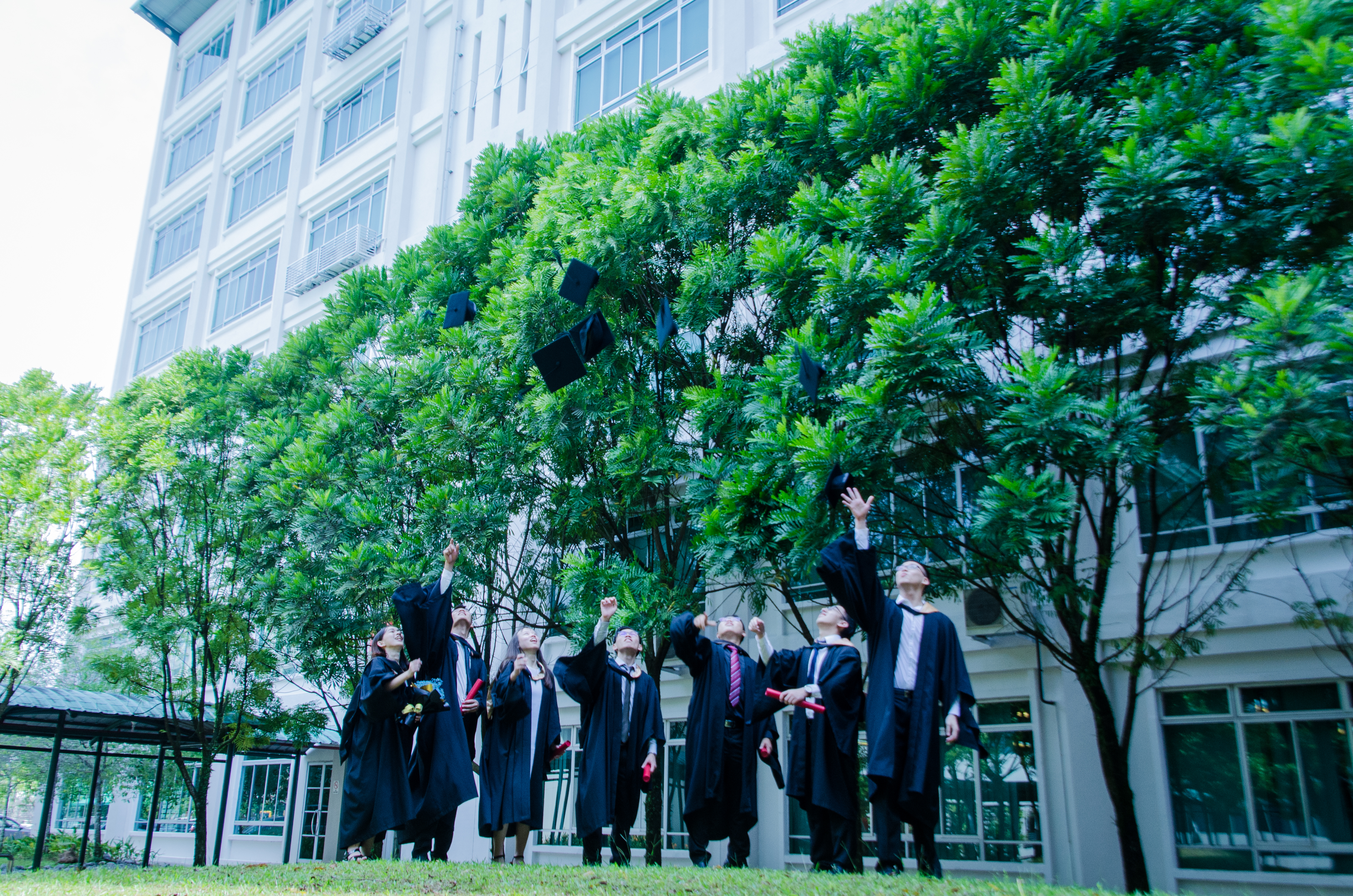Swinburne alumnus Henry Yong Chun Haw may not be a native speaker of the Japanese language, but that did not deter his determination in mastering it.
From winning the first speech competition organised by the Sarawak-Japanese Friendship Club, Henry shares advice on language learning and explains the techniques that enable others to improve quickly.

1. Congratulations Henry! Please share with us what sparked your initial interest in the Japanese language?
Thank you. I have always loved watching cartoons since childhood, so my initial interest was sparked when I first came across Japanese anime. Only during my time as a student in Swinburne Sarawak did I get the chance to learn the language from the Swinburne Japanese Language Club. Currently, I am continuing my language journey with the Sarawak-Japanese Friendship Club.
2. Tell us more about your winning presentation in the competition.
My presentation was titled “My Childhood Experience of Riding on a Bicycle”. It was a story of how I overcame my fear of getting on a bicycle.
The tale retold my experience as a child learning to ride a bicycle where I fell and severely injured my nose. After being teased with the nickname ‘Wild Cat’ by classmates, cycling became my personal trauma.
However, my story comes with a sweet ending as I managed to conquer my fright of getting on two wheels. With a fiery desire in me and the encouragement of my father, I achieved what I had always dreamed of: to ride a bicycle.

3. Japan and Malaysia both have fascinating and multifaceted cultures. What similarities do you see in both cultures?
There are many similarities between both cultures. Among them is the same concern for their national education. Japan has a long history of implementing the Gimu kyouiku (義務教育) for the nation. It means compulsory education, which covers six years of elementary school and three years of junior high school education. In Malaysia, it is almost identical where it is common for every child to complete their primary and secondary education, including sitting for public examinations.
Another similarity is that in both cultures we inform our family or those in the household before we leave the house. The Japanese are taught to say Itte Kimasu (いってきます) to their parents or partner when they are about to leave from home. In turn, the parent or partner will reply with Itte Rasshai (いってらっしゃい) to acknowledge the departure.
4. What is one word in Japanese you find interesting which doesn’t exist in the English language?
One Japanese word I find interesting is Ikigai (生き甲斐). It is a popular word commonly quoted in talks and books.
The word Ikigai is a Japanese concept which means a reason for being, or in other words, a reason to get up in the morning. Ikigai covers 4 elements including ‘what you love’, ‘what the world needs’, ‘what you are good at’ and ‘what you can get paid for’ to encourage self-awareness and deepen the understanding of ourselves so that we can live a meaningful and fulfilling life.
5. Learning a new language can be difficult. What were your struggles in learning Japanese and how did you overcome them?
The very first challenge I encountered was learning the Gojūon (五十音). Gojū means “fifty”, while on means “sound”. There are 50 pronunciations for the components in the Gojūon, also known as the Kana. In addition, there are 2 syllabaries for the Kana which are the Hiragana (ひらがな) and the Katakana (かたかな). The writings for both of the syllabaries are different from each other although they share the same pronunciation.
It was a struggle to remember the Kana and its writings. In order to remember the Kana and its pronunciations, I listened to a lot of Japanese music with references to the lyrics.
Furthermore, I browsed through Japanese articles from Yahoo.jp and other websites with Japanese content to try reading and understanding the articles. As for writing, I practiced it by doing exercises from Japanese classes.
6. Describe an instance when learning a foreign language benefitted you in daily life.
Learning a new language has earned myself a ticket to a new world which expanded my personal network. With the ability to communicate in Japanese, I have met more people and made more friends including Japanese natives as well as local Malaysians who have a common passion for the Japanese language.
Incidentally, it also increased my exposure to Japanese culture, lifestyle and other aspects which enhanced my knowledge regarding Japan. I get to learn more of what happens outside Malaysia as I now understand Japanese news and articles.
7. When it comes to career development, learning a foreign language is always an added advantage. In what way do you think languages helped you when you had to look for a job?
Needless to say, learning the Japanese language has presented additional job opportunities as I am blessed with the choice of working with Japanese organisations based in Malaysia which hire employees who can speak the language.
However, in order to prove your qualification in the Japanese language, you will need to sit for the Japanese-Language Proficiency Test (JLPT).
8. What are other languages you believe are important for career growth?
It is actually highly subjective considering a person’s objective and location. In Malaysia, I believe that the most important languages are English, Bahasa Malaysia, Mandarin Chinese, and Tamil as these are the most common spoken languages in Malaysia.
Learning a new language is fun and wonderful. It does not matter where your passion is. Be it is Spanish, Portuguese, Korean, Japanese or any other language; as long as you have the interest to learn, then the only thing left to do is to pursue it!

9. What was your experience like during your studies at Swinburne Sarawak?
Since the start of my Foundation (Business) studies until my completion of Bachelor of Business (Accounting and Finance), my four years in Swinburne were truly enjoyable.
I made life-long friends and still think fondly of my memories of the days I was in the Swinburne Japanese Language Club, Swinburne Sarawak Esports Club, and Swinburne Orchestra.
Without taking that first step to pursue my language passion with the Swinburne Japanese Language Club, I would not be able to make it this far or join the language contest. It would be great if I could be part of Swinburne again.

10. What are your personal tips for anyone looking to pick up another language?
My personal tip to learn a new language that may come as a surprise to others is: never begin it with a book. Indeed, we may need a textbook to guide us through the learning process, but it will also quickly fetter our interest to learn if we solely rely on books.
Rather, pick up other sources of material such as a TV drama, comedy show or YouTube video with subtitles to practise listening and comprehension. Learning a language is not only about reading and writing, but also listening and speaking.
Meanwhile, keeping the interest and the motivation to learn are as important as the learning itself. By enjoying and interacting with a show or movie, we can be more motivated to learn. Lastly, listening to a podcast or music is also a great way to pick up a language.
Henry is an alumnus who graduated from the Bachelor of Business (Accounting and Finance) programme. His alma mater is SMK Green Road, Kuching.

